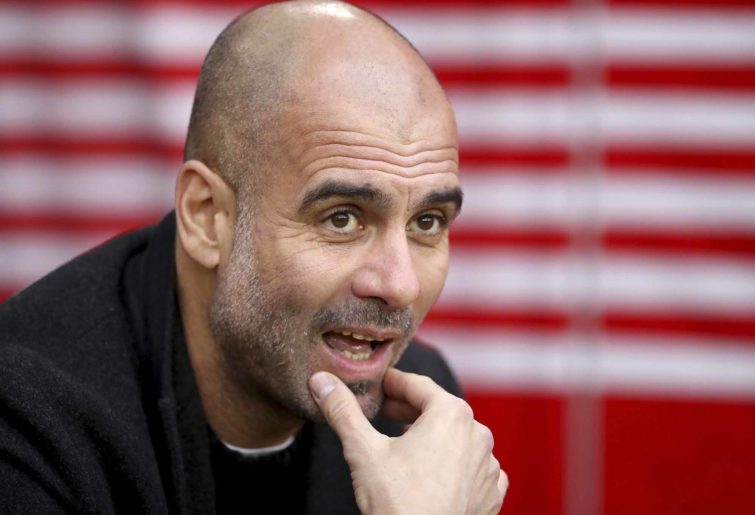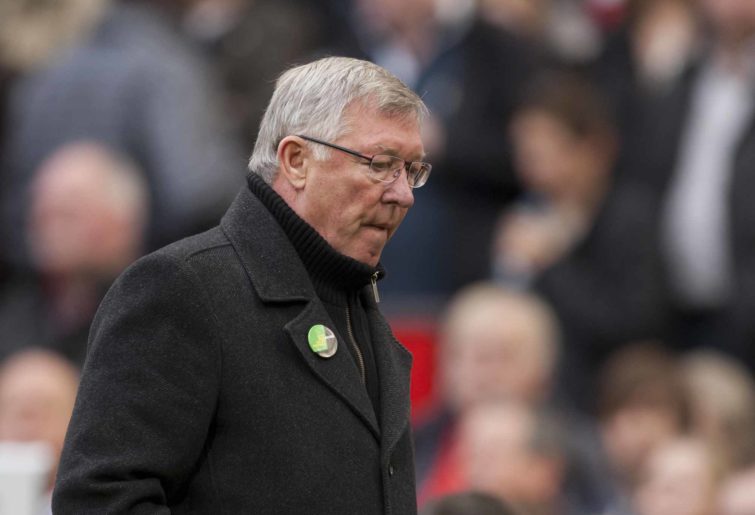Controversy as Villa keeper handed second yellow for shootout crowd taunting... but isn't sent off
Emi Martinez was saved by a new rule that resets yellow cards at the end of extra time, meaning his second yellow for taunting…
Opinion
When we think of football the first point of reference is rarely with the manager.
However, it is without question that the manager fills one of the most important roles within a football club. Why else is it that when results are poor the manager is the first to fall?
The recent sackings of Mauricio Pochettino at Tottenham and Unai Emery at Arsenal have emphasised the importance of managers to clubs even in an era during which they are perhaps less hands-on than ever before.
However, what is it exactly that dictates whether or not a manager is effective? When we think of world-class managers we think of the likes of Sir Alex Ferguson, Pep Guardiola, Jurgen Klopp. What is it about these managers and their leadership styles that has them gain results when many others fail?
Today I believe I can present the answer.

(Adam Davy/PA via AP)
Effective management goes beyond the idea of a master with the greatest tactical knowledge. The smartest person in the room may not have the expertise necessary to bring their vision. Rather, tactical knowledge is the bare minimum requirement for effective management, as are communication skills and listening to players.
The best managers are able to go above what is considered the minimum and establish a culture of excellence within their club. They ensure that this culture is adhered to by all players and throughout the entire organisation, requiring their players to buy into the new vision established. Their authority within the organisation must be absolute, otherwise players will break from the vision and they will pay with their jobs.
Let’s start with the first component, establishing a culture of excellence. Managers must maintain high expectations within the club, holding all members accountable. The players need to accept this culture and the new vision the manager wants to achieve. This seems remarkably simple, but this often the first failure.
The club’s vision needs to be strong and something the players want to achieve, otherwise there will be serious discontent among the playing group when they inevitably are forced to change their behaviour. Josep Gombau’s reign over the Western Sydney Wanderers a few seasons ago is a textbook case of what not to do when starting at a new club.
Former captain Robbie Cornthwaite’s comments emphasise the importance of not only establishing a vision but also getting players on board with the vision to begin with.
According to Cornthwaite’s comments, Gomabu had established the vision of “playing the best football in Australia”, but the training sessions had left players confused and doubtful of the new regime. Gombau’s failure to establish a vision to the point even the captain lost belief in the system was always going to signal the beginning of the end.
This is also the case of Pochettino when he was sacked by Spurs. Reports suggest that it was player unrest that signalled the end of his regime, and a mixture of being unable to get his players back on side and an unwillingness to adjust his methods further illustrates the difficulties in not only establishing a vision but also maintaining it for the foreseeable future.
This is perhaps why Sir Alex Ferguson was so successful at Manchester United. When Ferguson was appointed he made it his mission to abolish the drinking culture that had plagued the club, explaining to the players why it was necessary. Those who did not conform to the new procedure were forced out of the club and sold. Ferguson forced his vision onto the club and was largely effective.

(AP Photo/Jon Super)
While it’s crucial players accept the new vision, the board must also support the manager in the new regime. Ferguson was able to remove nonconforming players quickly, whereas in contrast Pochettino was unable to remove players who were believed to even want to leave the club, such as Christian Eriksen and Danny Rose. Having uncommitted players at the club, especially one as influential as Eriksen, would have made it even more difficult for the manager to achieve success.
However, when the manager is unable to remove the problem players they must make an effort to get them onboard through other means. The most effective managers are able to use their charisma to inspire players to conform to the vision not because they have to but because they want to. This is perhaps the most powerful tool Jurgen Klopp had at his disposal at Liverpool.
The players at Liverpool are all behind what Klopp is trying to achieve. There is a real feeling of togetherness at the club. Klopp has shown he has a ruthless streak, such as by selling Mario Balotelli and Christian Benteke, to name a few, but the ones who remain at Liverpool do so because they believe the culture he has created is going to make them successful in the long term.
A comparison can be drawn through Pep Guardiola’s revolution at Manchester City. Guardiola showed his ruthless streak by removing fan favourites Yaya Toure and Joe Hart and then demoting replacement Claudio Bravo to the bench after signing Ederson. However, the players who stayed at City showed a level of commitment to the vision established by Guardiola.
Reportedly Guardiola texted Raheem Sterling at the beginning of his reign at Etihad Stadium that he was looking forward to working with him. Things like this show the level of charisma managers must have if they are to overcome player concerns. While a text message is not much, the context – Sterling performing poorly at Euro 2016 – is meaningful, and small touches like that can significantly motivate players.
Charisma is about going above and beyond what is required to make players want to perform. It doesn’t have to be a grand gesutre, but it should be enough to make a notable impact on a player’s mood. Of course a manager can bypass this and instead just chose to rule with an iron fist through threats and punishments, but this is not going to be successful in the long term, as if you alienate and force out players without communicating your vision successfully to the rest, you run the risk of creating discontent in the dressing room, as is reportedly the case with Jose Mourinho and the Chelsea and Manchester United dressing rooms.
It is through the establishment of a culture of excellence that managers can set the standards within the club. Players need to be held accountable to the new standards, and any discontent needs to be dealt with immediately. While threats may give some short-term benefits, the most effective form of control within the club is the charisma of the manager, as it is a manager’s charisma that can motivate players to accept their vision and hence achieve results.
As such, effective football management in the 21st century relies on the combination of culture, charisma and control. It is through the interplay of these factors that a vision can be communicated and achieved.